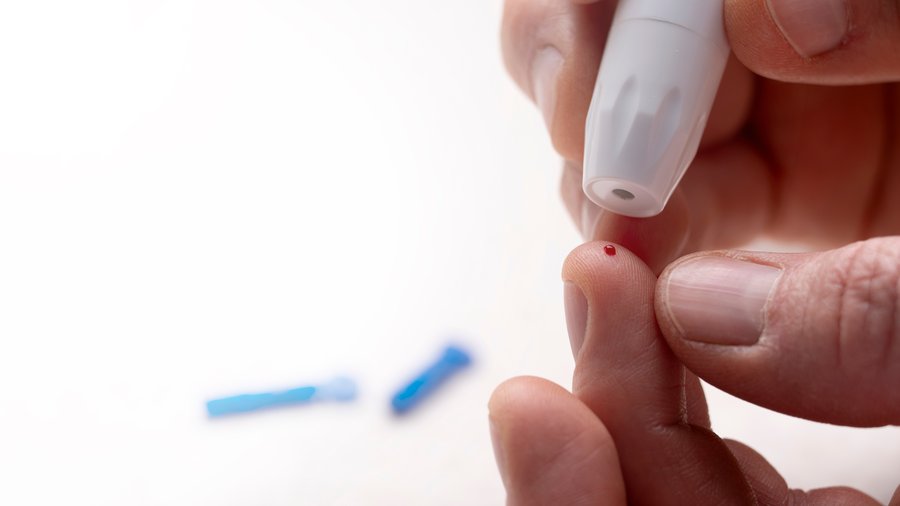What is glucose?
Glucose is a central component of energy metabolism and serves as the primary energy source for the cells of the human body. It is obtained from the carbohydrates in food and transported via the bloodstream to the cells, where it is used to produce energy. The regulation of blood glucose levels, i.e. the concentration of glucose in the blood, is a complex process controlled by the interaction of hormones, in particular insulin and glucagon.
Insulin, a hormone secreted by pancreatic beta cells, plays a key role in glucose homeostasis. It promotes the uptake of glucose into muscle and fat cells and enables the storage of excess glucose in the liver in the form of glycogen. Glucagon, another hormone produced by pancreatic alpha cells, acts as an antagonist to insulin. It is released when blood sugar levels are too low and stimulates the release of glucose from the liver's glycogen stores.
Normal blood glucose levels are essential for maintaining energy supply to cells and for the functioning of the whole organism. Deviations from normal blood glucose levels can have serious health consequences. A permanently elevated blood sugar level is characteristic of diabetes mellitus, a disease associated with significant complications such as cardiovascular disease, kidney failure and nerve damage. Conversely, a blood sugar level that is too low, known as hypoglycemia, leads to acute symptoms such as weakness, confusion and, in extreme cases, loss of consciousness.
The regulation of blood sugar levels is a dynamic process influenced by various factors such as nutrition, physical activity and genetic predisposition. Glucose homeostasis disorders are directly related to the development of metabolic diseases, particularly type 2 diabetes, and are therefore of great interest to medical research and practice.
The importance of glucose for the metabolism
Glucose is essential for the body's energy metabolism and is the preferred energy source for brain cells in particular. Since the brain depends on a continuous supply of glucose, blood sugar levels are kept constant by complex hormonal mechanisms. Insulin plays a central role in this process, promoting the uptake of glucose into cells and its conversion into energy. When glucose is in short supply, the body draws on stored energy sources such as glycogen to keep blood sugar levels stable.

Good to know
Stable glucose levels are so important for the brain that even small fluctuations in blood sugar levels can significantly affect cognitive performance and mood.
Effects of glucose imbalances
Imbalances in blood sugar levels have direct health implications. Chronically elevated blood sugar levels, as seen in type 2 diabetes mellitus, lead to a range of health complications, including vascular damage, cardiovascular disease and kidney failure. Conversely, blood sugar levels that are too low can cause hypoglycemia, which can trigger acute symptoms such as dizziness, tremors and, in extreme cases, loss of consciousness. Careful control of blood sugar levels is therefore essential for the prevention and treatment of metabolic disorders.
Blood sugar in clinical practice
In clinical practice, blood glucose levels are regularly monitored to detect signs of diabetes or other metabolic disorders at an early stage. Fasting blood glucose and oral glucose tolerance tests are common diagnostic methods for assessing glucose regulation. Early intervention in the event of abnormal values is crucial to prevent long-term damage and maintain the quality of life of those affected. Blood glucose control is therefore a central element of modern medicine.
![[Report Bild]](/static/reportImages/GlucoseSensor.jpeg)